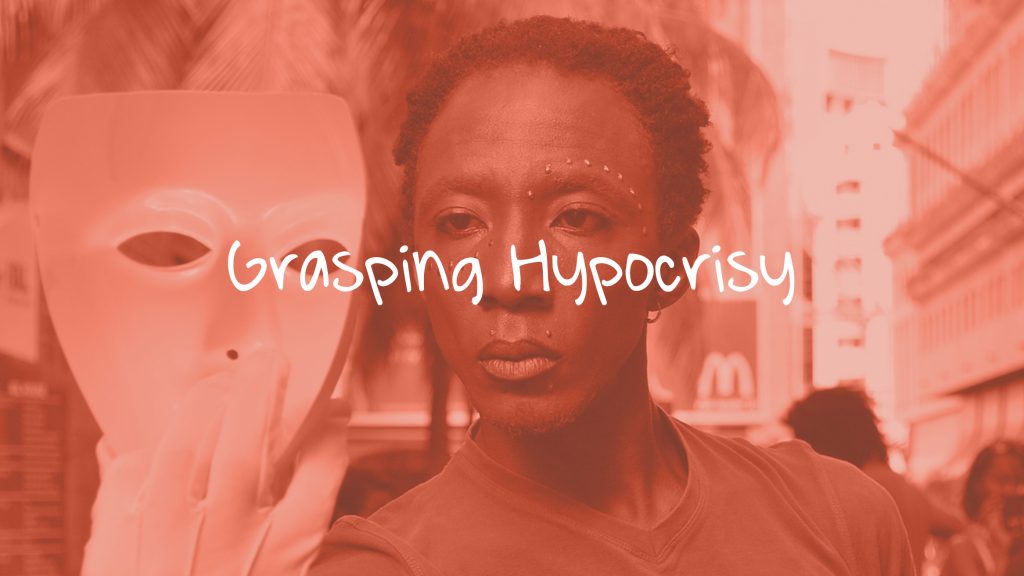For I do not understand my own actions. For I do not do what I want, but I do the very thing I hate (Romans 7:15).
I’m a hypocrite. Confession is good for the soul. I feel better now.
Now it is your turn. Please read and mean the following, “I am a hypocrite too!” Do you feel better now?
The Apostle Paul said that he was a hypocrite. In Romans 7:15-20, he describes his hypocrisy as, “I do not do the good I want, but the evil I do not want is what I keep on doing” (v. 19).
I read a lot of books on self-awareness and anxiety. The books are helpful. Much of what we know about moods, fear, and depression has been discovered in the past two decades. I find these books’ present current research proving what the New Testament said over two thousand years ago.
However, most of the books leave out the most important factor…
Sin!
When the Apostle Paul writes of his hypocrisy in Romans 7, he explains the cause:
For we know that the law is spiritual, but I am of the flesh, sold under sin (v. 14).
Researched therapy books follow the idea that we have a story. No judgments on that story – you have your story and I have my story. We should accept one another, and when we don’t, we are being judgmental.
If you have difficulties, the solution is self-assessment – note what is wrong in your life, be aware of your situation, connect with your feelings – and underlying this humanistic philosophy, we are inherently good.
If sin exists, then the epitome of hypocrisy is not admitting that we are sinners. This is the ultimate lie that our entire culture strives to hide from us!
Okay, again, “Pastor Grant is a sinner!” Now, “I am a sinner too.”
I enjoy reading the many books on brain research, self-awareness, and how to unwind anxiety. I will continue to read them. But at the end of each book, I know something is missing.
If we are basically sinful, as the Bible teaches, we must recognize that no amount of being better or listening to great council can ultimately eliminate the problem of sin. And without the grace found in Jesus – all their prescribed suggestions for healing will ultimately fail.
Note: I am not saying that you shouldn’t see a counselor or read books. Humility is recognizing truth from all sources.
At the end of a recently read book, the author says:
Even in my fifties, I find myself wrestling with the same questions that left me confused as a kid: Why do we cause each other so much pain, and why do we turn away from hurt when the only way to the other side of struggle is through it?
She wrote a great book. I enjoyed it thoroughly, but the admitted statement of still seeking a solution to the ultimate cause of confusion and pain will be a continued struggle for her and all other self-help authors as they miss an important point.
We all sin and fall short of the glory of God (Romans 3:23).
The wages of sin is death, but the free gift of God is eternal life in Christ Jesus our Lord (Romans 6:23).
One final time, “Pastor Grant is a hypocrite.” And “I am a hypocrite too.”

